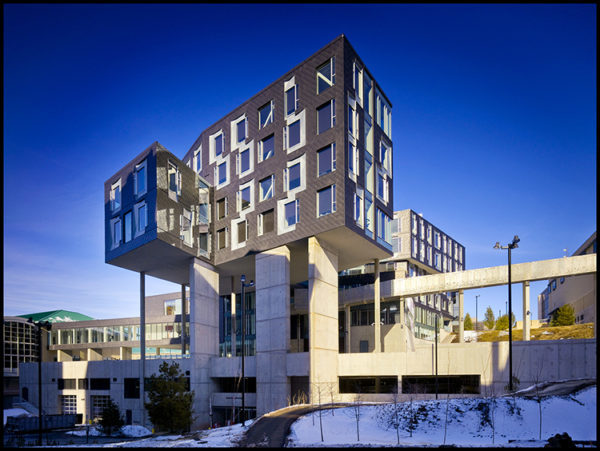
CMU Computer Science Academy debuts new (and free) high school coding curriculum
Photo: Gates Center for Computer Science at Carnegie Mellon University. Photo by Ed Massery.
This story first appeared in NEXTpittsburgh, which publishes Kidsburgh.
For aspiring hackers in grades K through 8, it’s a great time to be learning.
Tech companies and nonprofit groups provide hundreds of hours of free and accessible online coding courses, and many elementary schools nationwide are using them.
But according to Carnegie Mellon University computer scientist Erin Cawley, this vast network of support is focused on younger learners. By the time aspiring coders reach ninth grade at most American schools, they’re offered no computer science courses beyond advanced placement courses designed by The College Board, makers of the SAT.
“What happens is you get students really excited about coding,” Cawley tells NEXTpittsburgh. “Then they get to high school and they don’t really have a lot of options.”
This is where Carnegie Mellon University’s Computer Science (CS) Academy comes in.
Launched in January, the CS Academy provides free coursework and ongoing support for high school coding classes, giving any school with an internet connection the resources to “help bridge the gap” from elementary to intermediate code work, says Cawley, the program manager for the initiative.
This week, the Academy debuted their latest curriculum, known as CS0. Their previous course, CS1, had been designed for traditional classroom settings where students meet every day. Cawley says this new course is optimized for summer camps and after-school programs that meet less frequently.
Students still learn the basics of the Python programming language. But Cawley says the class is “a little bit of a lighter introduction.”
While eminent CMU computer science professors David Kosbie and Mark Stehlik write the overall content, a team of 30 undergrads designs the exercises and challenges that students spend most of their time using on the platform.
The best part? These same students also provide remote assistance for the teachers using their tools. “Our students have allowed us to provide a level of support to teachers that you typically don’t get with other free curricula,” Cawley explains.
Since the program began earlier this year, 1,500 teachers have created accounts and 6,000 students use the coursework on a daily basis.
Cawley says the Academy will continue to refine their existing courses while prepping for the launch of CS2, a higher-level curriculum for sophomores and juniors. It will include modules on cybersecurity and artificial intelligence. On top of that, students are translating all of the Academy’s existing classes into Spanish for a debut next fall.
Cawley stresses that these projects and many more to come will be completely free for students and teachers.
“We’re excited,” she says, “to do what we can to help make a difference in this space.”